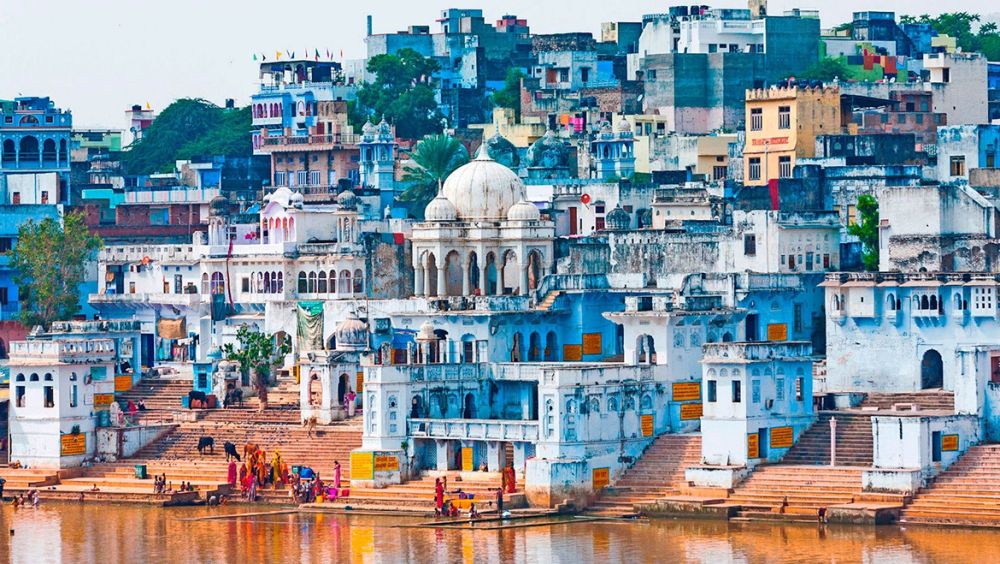

Pushkar is one of the oldest cities in India, and its tourism history is intertwined with its spiritual significance and cultural richness. Nestled in the heart of Rajasthan, Pushkar is home to one of the few temples dedicated to Lord Brahma, the Hindu God of Creation, which makes the city an important pilgrimage destination for Hindus worldwide.
The history of tourism in Pushkar can be traced back to Hindu scriptures and myths, which suggest the city has been a site of pilgrimage for over two thousand years. The Pushkar Lake, surrounded by 52 bathing ghats, is believed to have been created by the lotus petal that fell from Lord Brahma's hand, and taking a dip in its sacred waters is said to cleanse sins and cure skin diseases.
Every year, during the month of Kartik (October-November), Pushkar comes alive with the Pushkar Mela or Pushkar Fair. It is one of the largest camel fairs in the world and has been a major attraction for both domestic and international tourists. Historically, the fair began as a venue for livestock trading but has evolved into a cultural extravaganza, featuring music performances, traditional dances, and handicrafts stalls.
With the advent of British presence in India, Pushkar garnered interest among European travelers and scholars. They were fascinated by the city's religious rituals, historical temples, and picturesque landscapes. During this period, Pushkar slowly started appearing on the tourism map for visitors who sought to understand and experience the diverse cultures of India.
In the last few decades, Pushkar has become increasingly popular as a global tourist destination. The city has managed to balance its spiritual essence with the demands of modern tourism. While pilgrimage remains central to the city's identity, Pushkar now offers a wide range of experiences for varying tourist preferences, such as heritage walks, culinary tours, and hot air ballooning.
Eco-tourism and sustainable tourism practices have gained momentum in recent years, with an emphasis on preserving the natural beauty of the surrounding desert and ensuring that tourism benefits the local community. Accommodation options have expanded, ranging from luxurious resorts to traditional guesthouses and desert camps, catering to different segments of tourists.
Today's tourists are more interested in immersive experiences that allow them to learn about local culture and traditions. Pushkar has responded by offering workshops on Rajasthani crafts, cuisine, and music. However, the city faces challenges in managing the environmental impact of tourism, ensuring crowd control during peak seasons, and preserving the sanctity of religious sites.
In recent times, events like the Pushkar International Hot Air Balloon Festival have added a modern twist to tourism in Pushkar, drawing adventure enthusiasts from around the world.
Despite fluctuations and evolving trends, the sacred city of Pushkar continues to enchant visitors with its timeless charm and promises to be a key spiritual and cultural destination for years to come.